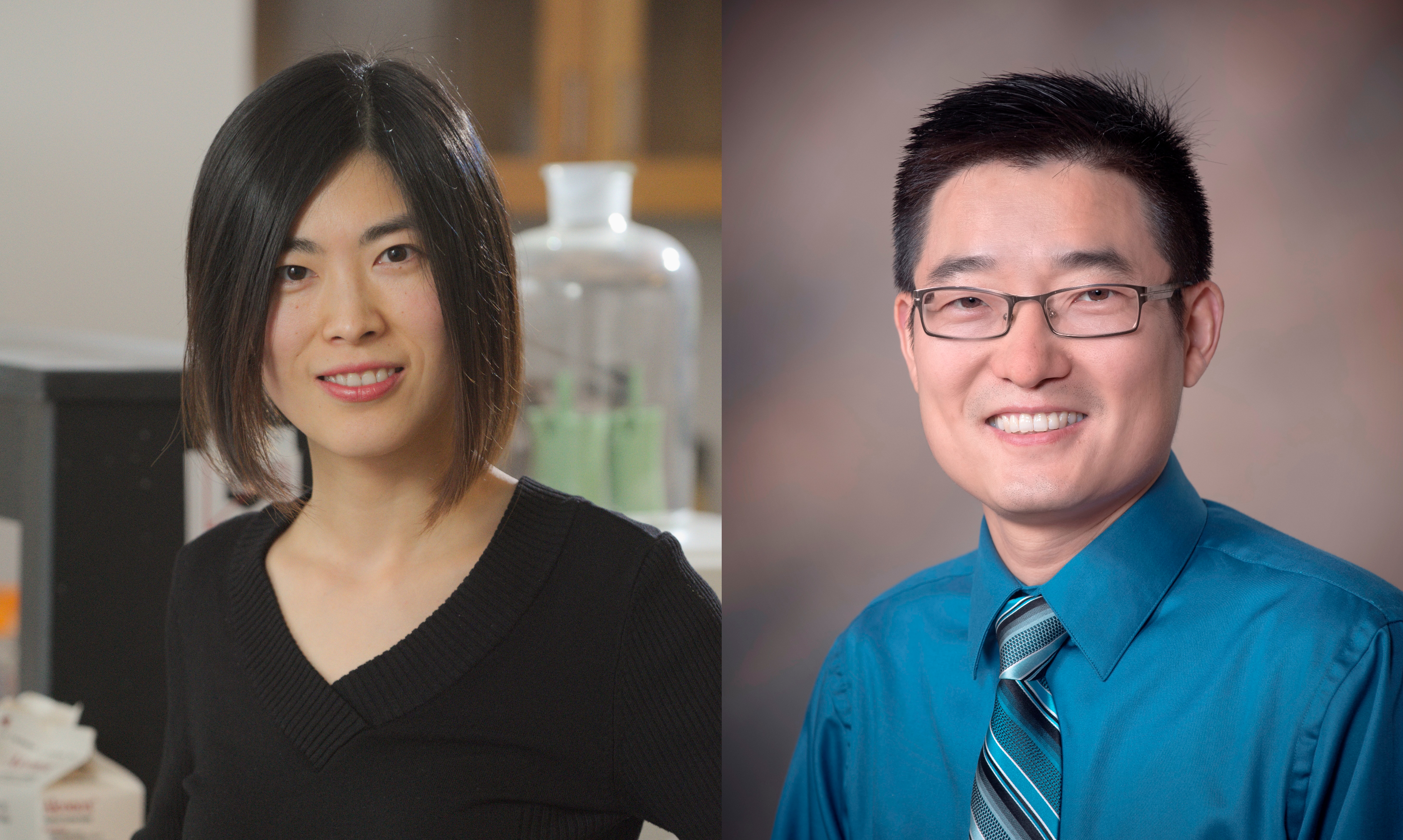Husson Researchers Continue to Research Broccoli Sprout Bioactives in the Suppression of Colon Tumorigenesis
By Patrick Caldwell

On left, Dr. Yanyan Li, Associate Professor in the College of Science and Humanities at Husson University. On right, Dr. Tao Zhang, Assistant Professor in the School of Pharmacy at Husson University. Images courtesy of Husson University.
BANGOR, ME – Although it was announced a year ago, research continues on the correlation between broccoli sprouts and their effect on suppressing/reducing colon inflammation or tumorigenesis (the production/formation of a tumor or tumors).
Dr. Yanyan Li is an Associate Professor in the College of Science and Humanities at Husson University. Receiving her PhD in Food Science and Nutrition from Ohio State University, Dr. Li has an extensive background in researching cancer chemopreventive properties. Working with Dr. Li is Dr. Tao Zhang, Assistant Professor in the School of Pharmacy at Husson, who has conducted research with Dr. Li on many other related topics. A major research goal of Dr. Zhang’s is to identify compounds that discourage the growth and self-renewal of cancer stem cells.
Drs. Li and Zhang collaborate with Dr. Grace Chen, Associate Professor of Internal Medicine at the University of Michigan and a medical oncologist who specializes in the treatment of colorectal cancers. The trio have worked together in the past, with a study published on Multidisciplinary Digital Publishing Institute (MPDI)’s Antioxidants in December 2018 titled, “Flavonoids and Colorectal Cancer Prevention”[1].
In February 2018, Husson announced that Drs. Li, Zhang, and Chen received a $500,000 research award from the National Institute of Food and Agriculture at the United States Department of Agriculture (NIFA-USDA). This award funds research intended to investigate “the interactions between the natural chemical compounds found in broccoli sprouts and gut bacteria” [2] to see if the consumption of broccoli sprouts could slow down or reduce the development of colon inflammation and colon tumorigenesis.
“We hypothesize that there is an interaction between gut microbiota and the bioactives in broccoli sprouts,” said Dr. Li. “We expect to see a positive relationship between the two.”.
Broccoli sprouts are very rich in glucosinolates (GSLs), which are converted into bioactive isothiocyanates (ITCs). According to Dr. Li, sulforaphane, one member of ITC, is a key bioactive that is known to inhibit carcinogenesis and tumorigenesis in certain circumstances. This research is investigating whether the gut microbiota can help to convert GSLs into ITCs like sulforaphane. This is being conducted using mouse models, feeding the mice with high-GSL/ITC diets.
There were over 135,000 new cases of colon and rectal cancers in 2017, with a little over 50,000 dying in that calendar year [3]. This research could result in the reduction of these numbers in the coming years through means of prevention versus treatment.
“I am very excited to see where this research leads,” Dr. Li exclaimed. “We’re taking our time, but we’re determined.”
[1] Yanyan Li, Tao Zhang, Grace Y. Chen. Flavonoids and Colorectal Cancer Prevention: A Systematic Review. Antioxidants. 2018, 7(12), 187;
https://doi.org/10.3390/antiox7120187.
[2] Husson University, “Husson University Researchers…Award from NIFA-USDA”
[3] Fighting Colorectal Cancer, “Facts and Stats” https://fightcolorectalcancer.org/prevent/about-colorectal-cancer/facts-stats/

